Share this link via
Or copy link
One of the best Japanese Kanji dictionary.
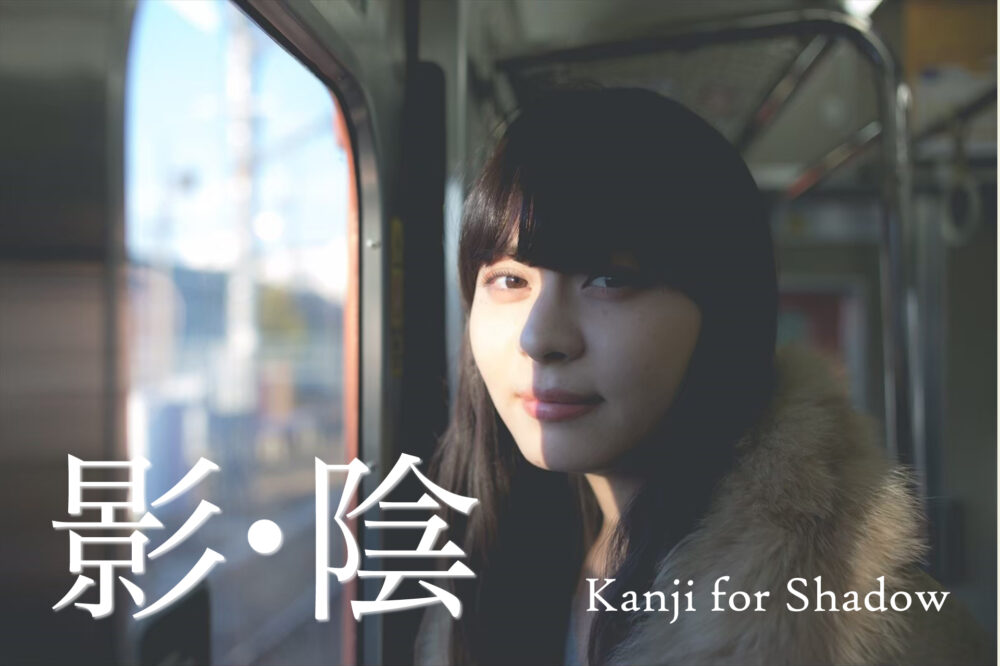
In Japanese, “shadow” and “shade” are pronounced in the same sound– 「かげ」“kage.” 
However, the Kanji characters used are not the same. 影 means shadow, and 陰 means shade.
But these characters have many other essential meanings that play important roles in the Japanese language. Let’s take a look.
Contents
Shadow
a) Darkness caused by the light prevented by something.
b) The dark shape that someone or something makes on a surface by blocking the light.
The back of something, or underneath it. Somewhere or something you cannot see.
Figure, shape, or remnant.
Phantom or illusion.
A portrait.
Light. (For example, 月影 means “moonlight.”)
Help.
Reflection on a mirror or water, etc.
Not real. (The word 影武者kagemusha means “body double.”)
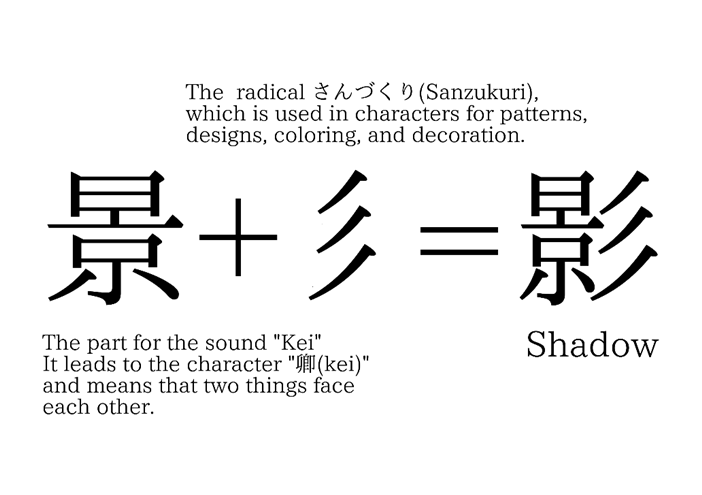
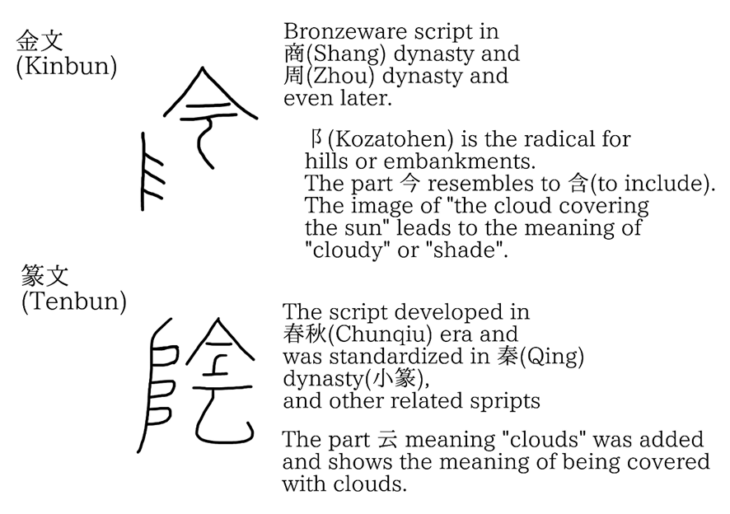
 : a shadow
: a shadow : influence
: influence : photography(「撮影する」’satsueisuru’ means “to take a photograph”)
: photography(「撮影する」’satsueisuru’ means “to take a photograph”) : remnant
: remnant : a projection, a reflection
: a projection, a reflection : phantom
: phantom : a shadow picture, a silhouette
: a shadow picture, a silhouette : a body double
: a body double陰陽(Inyō)  : The principles of Yin and Yang.
: The principles of Yin and Yang.
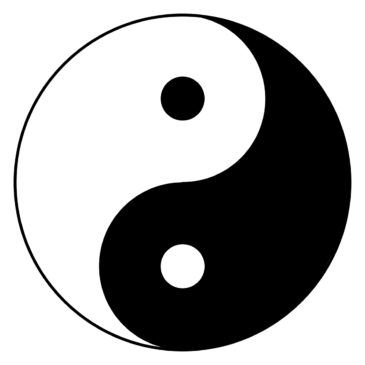
太極図(Taikyokuzu), a symbol of Yin and Yang
The white part represents「陽」and the black part represents 「陰」.This 太極図 is based on the cosmology that everything is made of the elements of 陰 and 陽.
This symbol is also used in the South Korean flag.
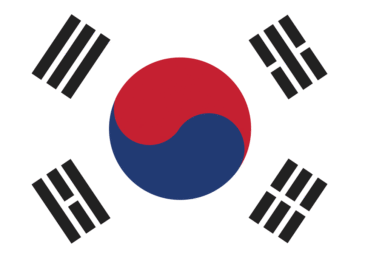
陰陽師(Onmyōji) 
陰陽師 are the people that worked as specialists of 陰陽道(Onmyōdō)  . 陰陽道 is a cosmology to explain the natural phenomenon and people’s luck based on Yin-Yang and 五行(Gogyō)
. 陰陽道 is a cosmology to explain the natural phenomenon and people’s luck based on Yin-Yang and 五行(Gogyō)  .
.
五行 is a cosmology from ancient China considering that everything consists of five elements, such as木(tree), 火(fire), 土(earth), 金(metal), and 水(water).陰陽師 were civil servants during the 律令時代(Ritsuryō Period) from the late seventh century to the tenth century. After that period, they were not civil servants anymore, but they prayed and performed incantations for people.
陰陽師 often appears as a hero that solves strangeness and wards off evils in Japanese comics.
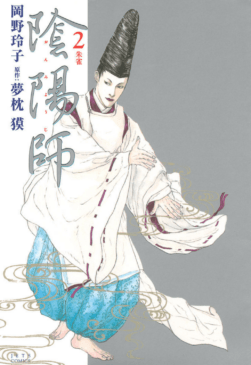
Image by: Onmyouji Vol.2 ©Reiko Okano, HAKUSENSHA
山陰地方(San’in chihō)  (⇔山陽地方 Sanyō chihō)
(⇔山陽地方 Sanyō chihō) 
山陰地方(San’in chihō) is the name of a region.「地方」(chihō) means “region” in Japanese. The region in the south of San’in chihō is called 山陽地方(Sanyō chihō).
Actually, these names are based on the usage of the characters of 「陰」and「陽」in Chinese. 「陰」 has a meaning of “the north side of the mountain,” and 「陽」 has a meaning of “the south side of the mountain.” There are mountains called 中国山地 (Chūgoku Sanchi, Chūgoku Mountains) between the two regions.
Therefore, the names of the two mean “the region on the north side of the 中国山地” and “the region on the south side of the 中国山地.”
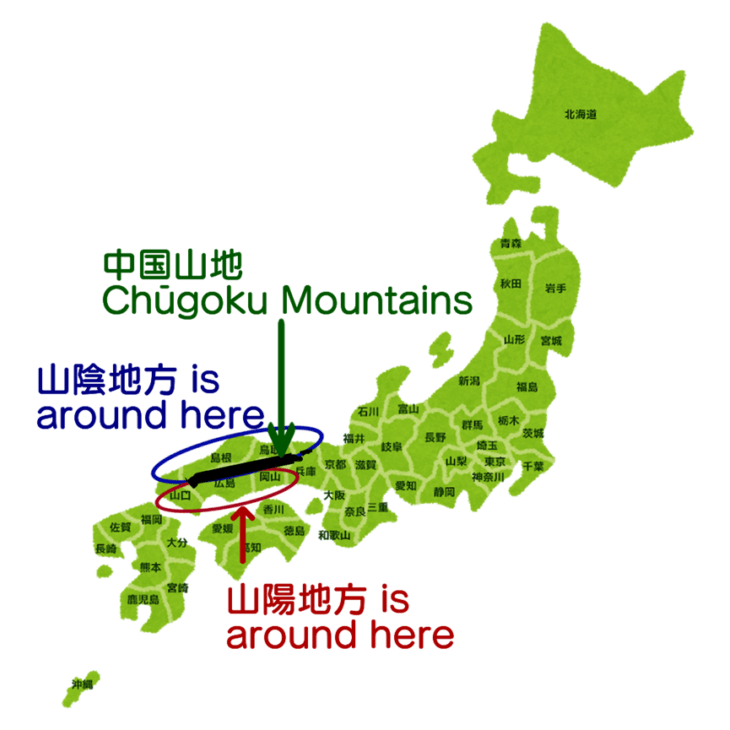
 : gloomy, feel depressed
: gloomy, feel depressed : gloomy, melancholy
: gloomy, melancholy :
: : negative when tested⇔陽性(yōsei): positive when tested
: negative when tested⇔陽性(yōsei): positive when tested : a plot, an intrigue, a conspiracy
: a plot, an intrigue, a conspiracy : backbiting, to speak ill of a person behind his or her back
: backbiting, to speak ill of a person behind his or her back「陰影」(In’ei) is a noun for “shade and shadow.” When drawing a picture,「陰影をつける」(in’ei o tsukeru)  means “to shade.”
means “to shade.”

犬の絵に陰影をつける人(Inu no e ni in’ei o tsukeru hito), a person shading a dog’s picture
 : nowhere to be seen
: nowhere to be seen : to cast a shadow over (on) something
: to cast a shadow over (on) something : to look emaciated, or does not has much of a presence
: to look emaciated, or does not has much of a presence : be a shadow of his or her former self
: be a shadow of his or her former self :” Sooner named sooner come.”
:” Sooner named sooner come.” 陰で糸を引く(kage de ito o hiku)
陰で糸を引く(kage de ito o hiku)  : to pull strings from behind.
: to pull strings from behind. : to help someone openly and secretly
: to help someone openly and secretly : Time flies like an arrow.
: Time flies like an arrow.「影」and「陰」are not characters that merely suggests places the light cannot reach. Especially「陰」is often used with a negative nuance.
How about in English? In the English dictionary, negative meanings rather appear on the headword of “shadow.” According to the LONGMAN Dictionary of Contemporary English (Fourth edition with writing assistant 2005), there is a meaning of “bad effect/influence.”
[singular] the bad effect or influence that something has, which makes other things seem less enjoyable, attractive, or impressive:
in/under the shadow of sth For years, people had been living under the shadow of communism. | cast a shadow over/on sth (=make something seem less enjoyable, attractive, or impressive) The events of September 11th cast a shadow over the celebrations.
(p.1629, published by Pearson Education Limited and Kirihara Shoten as its selling agency in Japan)
There are other phrases like self” (this phrase exists in Japanese too as「見る影もない」! ) or “afraid/frightened/scared etc. of your own shadow.”
In contrast, there are no negative meanings found in the headword of “shade.”
As the English proverb says, “Life is not all beer and skittles.” Maybe that is why there are so many words and phrases including shadow and shades with negative nuances. But that may be the exciting point of learning a language, learning how the people have tried to express the dark side of life.
What is Onyomi?
Onyomi, also known as the "Sino-Japanese reading," is one of the two main reading systems for kanji characters in Japanese. It refers to the reading of a kanji character that is derived from the original Chinese pronunciation.
What is Kunyomi?
Kunyomi, also known as the "native Japanese reading," is one of the two main reading systems for kanji characters in Japanese. It refers to the reading of a kanji character that is based on the native Japanese pronunciation. Kunyomi readings are often used when a kanji character stands alone or is followed by hiragana, as in verbs and adjectives. Mastering both kunyomi and onyomi is crucial for understanding and using kanji effectively in the Japanese language.
What is Radical?
A radical, also known as "bushu" in Japanese, is a fundamental component of kanji characters. Radicals are the building blocks of kanji and are used to categorize and organize them in dictionaries. There are 214 traditional radicals, each with its own meaning, which often provides a clue to the meaning of the kanji character it forms.
What is strokes?
Stroke count, or "kakusuu" in Japanese, refers to the number of individual brushstrokes required to write a kanji character. Each kanji has a specific stroke order and stroke count, which are essential for writing the character correctly and legibly. Understanding and following the correct stroke order not only ensures proper balance and aesthetics but also makes writing more efficient and fluid.